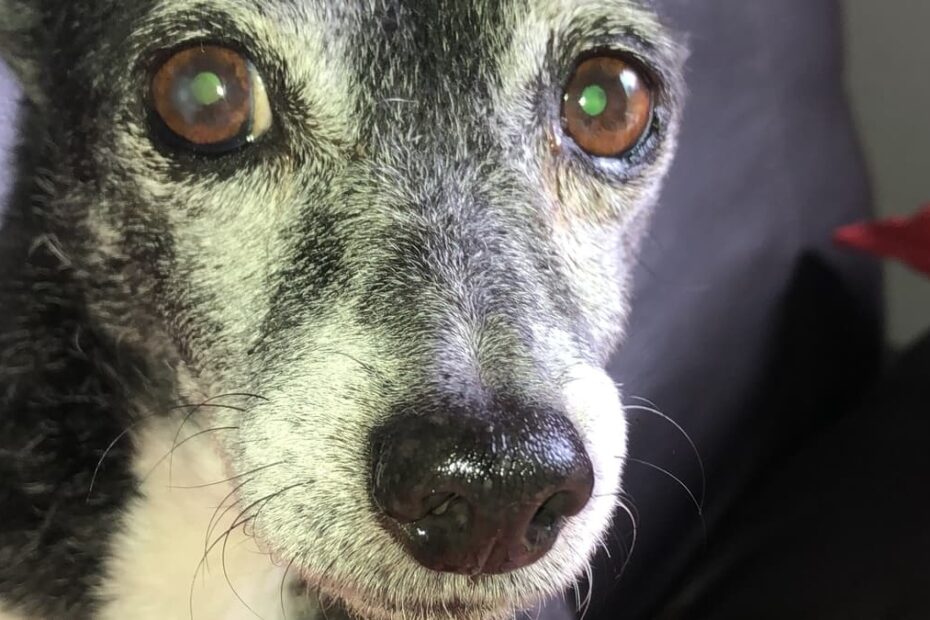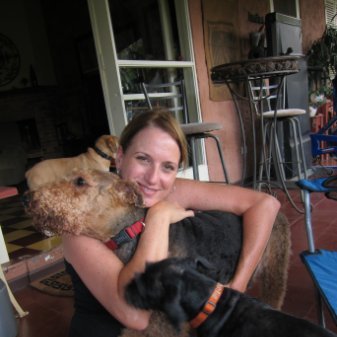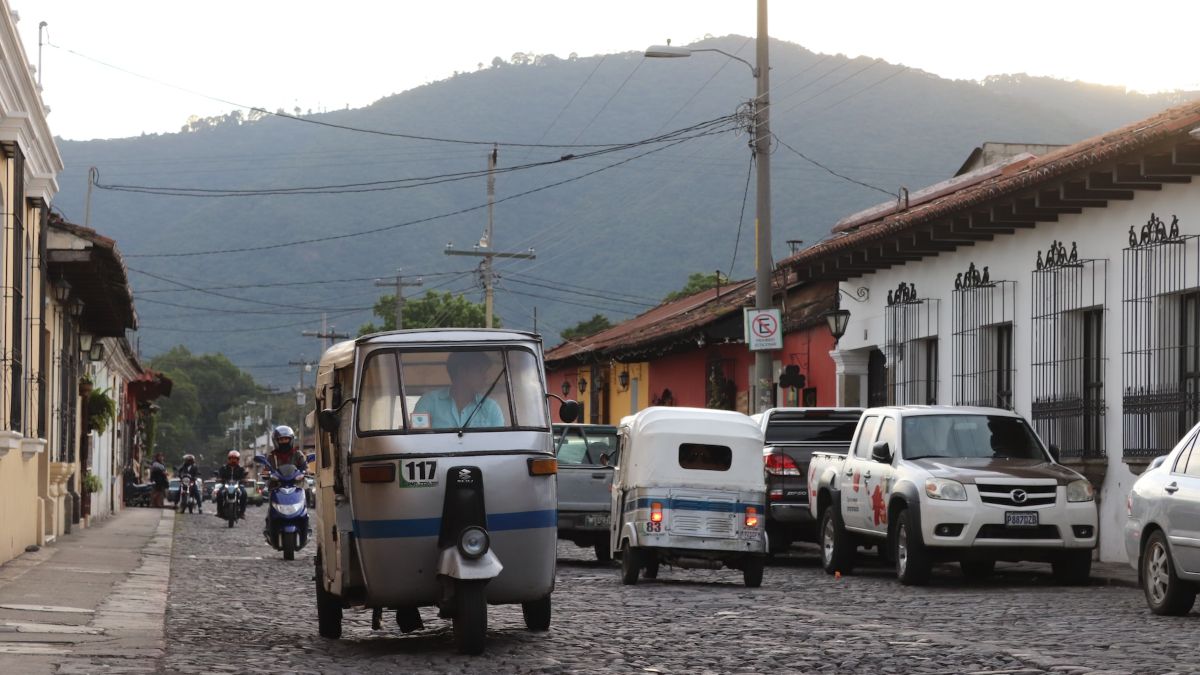Central America is full of lost and abandoned pets. Dog lover Joan Borreli offers a bullet-pointed guide to rescuing street dogs in Costa Rica.
I moved to Costa Rica in 2005 with my best friend, Simon, my Airedale terrier.
My transition from the U.S. was not about personal discovery or experiencing new cultures – I wanted to live somewhere warm and try something new.
Simon and I had a wherever you go – I go relationship, so on a hot windy day in February we arrived and started our adventure together.
It didn’t take long to realize my way of owning a dog was not the norm in Costa Rica.
I didn’t take Simon out without a leash. He stayed inside at night and was never unsupervised. I always knew where he was.
Our first home was a cute rented apartment on a family quinta outside of Santa Ana, west of San Jose. The family had an assortment of dogs that roamed between three different houses.
Bobbie, the husky puppy, loved to come to my apartment. He played with Simon and enjoyed treats. Sometimes he stayed over.
In the morning if he was not around, I’d ask for him, and the owners would say, “Oh, he got out of the gate last night, he’ll come back.”
No worry, no fuss, no panic.
View this post on Instagram
Most the time, I’d go looking for him. I worried he’d get stolen or hit by a car or lost. I was the only one who worried.
As time passed, I realized that despite living in a country of well-educated people, pet care and responsibility were not high priorities for many Costa Ricans. I encountered sad cases every day, horrifying cases of dogs and cats abandoned to the streets.
This was – and thirteen years later, still is – the hardest thing about living in Costa Rica for me.
In the past thirteen years, my husband and I have rescued around fifty dogs and two cats. Of those fifty, thirteen remained part of our family.
Right now we have ten dogs in our pack, and yes – I know it’s crazy – people ask me how can I care for ten dogs.
View this post on Instagram
My response is how can I NOT care for ten dogs?
All our dogs came from the street, in dire situations. Each one has a tragic story and each one now lives a happy, safe, life. We cherish and love them.
I’m grateful to several friends who have adopted dogs from me, and to complete strangers who heeded my call for help and opened their homes to save one or more of these lovely orphans.
Often on Facebook, I read posts like “Someone, please help, I saw this dog, lying along the road, he looks sick.”
My first reaction is always, you heartless ass, why didn’t you do something? Why can’t YOU help? We are all responsible to help those who can’t help themselves, and that includes animals.
View this post on Instagram
But the more I thought, the more I realized maybe people just don’t know what to do. So, I wanted to offer some guidelines.
I’m not a veterinarian or an animal specialist. I’m a regular person who loves dogs, with thirteen years of experience picking them up off the street and finding them homes.
I hope this information helps anyone who wants to help stray or lost animals.
If you find a dog on the street, you should be able to tell by its condition if it’s lost or abandoned.
Lost dogs:
- Are not usually super-skinny, their coats are not matted, and their skin is not filthy unless they’ve been lost for a longer period.
- May have a collar, tags. CHECK THIS FIRST.
- May have a chip. Take the dog to a local vet with a chip scanner, and they can check. Most will do this for free.
- Lost dogs tend to be more trusting of people, and more willing to approach you.
- Talk to the dog in a calm, soft manner and coax them to you, but be careful about picking the dog up, or any fast movements. Having a leash in your car helps, but you can use your belt, or a string, or a rope. Whatever you have.
- Get your pictures. Take some good clear pictures of the dog put them all over social media. Look for groups that exist in the area where you found the dog. Most towns have their own Facebook pages. Ask your friends to share.
- Take the pics and make a poster. Print 20-30 copies. Get a roll of packing tape and hit the neighborhood where you found the dog. Telephone poles, bus stops, mini-supers, anywhere anyhow. Get those posters up as quick as you can. Give a brief description of the dog, leave your phone number, and hope for the best. I have found owners with posters the vast majority of the time and always within two days.
Abandoned/homeless dogs:
- These dogs will come in every scenario you can imagine. Puppies, elder-dogs, sick, injured, scared, and sometimes sort of happy-go-lucky because street life is all they’ve ever known.
- Once you decide to help (and I hope you do), it’s best to take the dog to your vet first. Don’t wait because you want to get the dog quick medical attention if they need it. Some maladies are obvious: mange, broken bones, and cuts. Others are not: parasites, Ehrlichia, distemper.
- You need to be calm and careful when approaching an abandoned dog. They may be skittish and distrusting of humans. You may need a leash and collar to handle the dog. If you spot major injuries like broken bones, you must handle the dog with care. I once had to get a piece of plywood when I found a dog that had been hit by a car and left to die. I thought he had a broken back, so I grabbed a security guard at a nearby condo who helped slide the dog onto the board and into the back of my car. From there we went to my vet, and it turned out the dog had a broken hip and was in shock. He would have been dead in another 30 minutes, the vet said. We reunited him with his family three days later. They were heartbroken and devastated, then overjoyed when they realized he would be okay. His name was Oscar, he was ten years old, and he wandered out of their gate when a neighbor didn’t latch it. Oscar made a full recovery.
View this post on Instagram
Once you get the basic needs of the dog taken care of – food, water, medical attention, a safe place to sleep – it’s time to find a forever home:
- The first step is to take some good CUTE pics.
- Give your guest a name and make it appealing. Make it a name with some personality. Don’t use “Coco”, “Negro”, “Blanca”, “Canelo”, “Spot”, “Dog”. Everyone uses these names. Go with something that captures the dog’s personality, is memorable, and – well, yeah – one that pulls at people’s heartstrings.
- Now hit social media and get your friends to share. Tell the story of your found dog. Talk about him, how you found him, and talk about his traits, why you like him, etc. Post, post again, re-post. Keep the message going.
- If you have the means, offer to spay or neuter the dog for the new owners. Some dogs I’ve rescued were not healthy enough for an operation, but I always promise the new owners I’d cover the cost of the operation and medications when the dog is ready. If you can send them to their new home with a big bag of food, or anything they might need, do it. It helps the new owner. If you can’t, that’s okay too.
- ASK QUESTIONS to the potential owners. You don’t want to rescue a dog just to send them back to a hellish life. Do they have a fenced yard or a home in which the dog can’t get into traffic? Do they have young kids, other animals? Are they gone all day every day and will the dog be alone? Do they travel, who will care for the dog if they do? When you rescue a dog, you’re responsible for it.
View this post on Instagram
If all goes well, you will find a new loving home for your found dog. You’ll also have the joy of knowing you were part of the solution to the huge problem of street dogs in Costa Rica.
If you can’t find a good home for your found dog, and you can’t foster the animal, you can reach out to rescue organizations like Rescate Animal and Territorio de Zaguates.
You can also post on Facebook for help with foster care. Two great Facebook resources are the Rescate Animal page (linked above) and the Expat Pet Owners in Costa Rica group. You’ll always find help and advice on any aspect of dog rescue in both.
If everyone will step up and help an animal in need, we can solve the abandoned animal problem in Costa Rica.
Remember, spay and neuter your animals, and PLEASE always choose adoption. Zaguates (mutts) are the smartest, sweetest, healthiest dogs you can ever have in your life. They will be loyal, grateful, loving companions and your best friends forever.
Joan Borreli moved to Costa Rica in 2005 with her dog, Simon.




